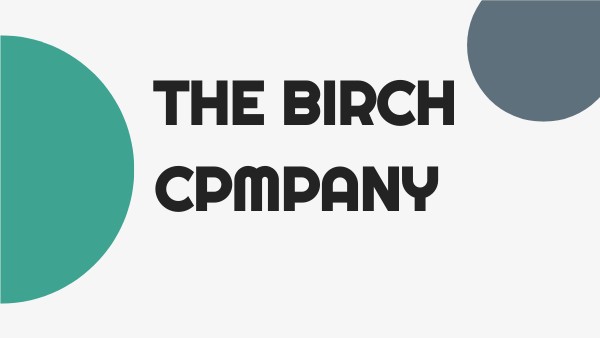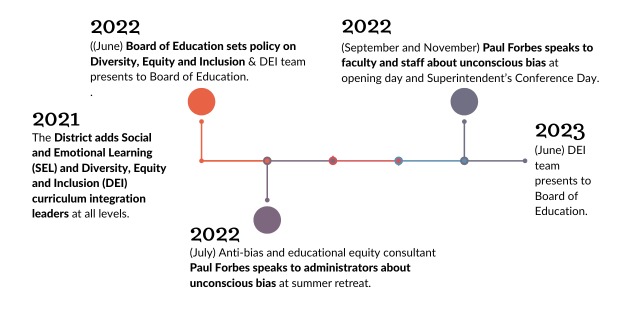Little Coffee's Successful Dragon's Den Pitch: Four Investment Offers

Table of Contents
Little Coffee's Unique Selling Proposition (USP): A Standout Business Idea
Little Coffee's success didn't happen by chance. Their unique selling proposition (USP) was a crucial differentiator in the competitive coffee market. They didn't just offer coffee; they offered an experience rooted in sustainability and ethical sourcing. This resonated deeply with their target market – environmentally conscious young professionals seeking high-quality, ethically produced products.
- Specific details about their product/service: Little Coffee focused on ethically sourced, single-origin beans, employing a unique slow-drip brewing method to maximize flavor. Their packaging was entirely compostable, reflecting their commitment to sustainability.
- Target audience description: Their primary target audience was environmentally conscious millennials and Gen Z, professionals who value quality and ethical considerations. They also appealed to a broader market of coffee lovers seeking a superior product.
- Market gap they filled: Little Coffee identified a gap in the market for premium, ethically sourced coffee with a strong commitment to sustainability. Many competitors focused on price or convenience, neglecting the growing demand for environmentally friendly and ethically produced products.
- Competitive advantage: Their combination of high-quality coffee, ethical sourcing, sustainable practices, and appealing branding gave them a significant competitive edge.
A Compelling and Concise Pitch Deck: Visual Storytelling for Success
Little Coffee's pitch deck wasn't just a collection of slides; it was a visual story that effectively communicated their vision and potential. The structure was clear, concise, and engaging, expertly utilizing data and visuals to support their claims.
- Key slides included: Their deck included slides focusing on the problem (lack of ethical and sustainable coffee options), their solution (Little Coffee's unique offering), market size and opportunity, detailed financial projections, and a strong introduction to the team.
- Use of visuals: Charts and graphs clearly illustrated their financial projections and market analysis, while high-quality images showcased their coffee and sustainable practices.
- Clarity and conciseness of the presentation: The presentation avoided jargon and focused on key messages, maintaining a consistent brand narrative throughout.
- Storytelling elements used to connect with the Dragons: The pitch incorporated a compelling narrative, highlighting the founders' passion and commitment to their ethical mission. This emotional connection resonated with the Dragons.
Financial Projections and Market Analysis: Demonstrating Potential for Growth
Little Coffee didn't just present hopeful projections; they backed them up with strong market research and realistic financial modeling. This demonstrated their understanding of the business and its potential for substantial ROI.
- Key financial metrics presented: They provided clear data on projected revenue, profit margins, customer acquisition costs, and break-even analysis.
- Market research data used to support their claims: Their presentation included compelling market research data showing the increasing demand for ethically sourced and sustainable products within their target demographic.
- Growth strategy outlined: They presented a well-defined growth strategy, including plans for expansion into new markets and strategic marketing initiatives.
- Realistic and achievable targets: Their projections were ambitious yet realistic, avoiding overly optimistic claims that could damage their credibility.
Understanding the Dragon's Den Investment Criteria
Little Coffee's success hinged on understanding what the Dragons look for. They expertly fulfilled several key investment criteria:
- Strong team with relevant experience: The founders demonstrated relevant experience and a strong understanding of the coffee industry and the target market.
- Scalable business model: Their business model was easily scalable, with potential for expansion into new markets and product lines.
- Clear understanding of the market: Their detailed market analysis demonstrated a thorough understanding of the competitive landscape and their target audience.
- Financially sound projections: Their realistic and well-supported financial projections demonstrated the potential for strong returns.
- Passion and belief in the business: Their genuine passion and enthusiasm were infectious, convincing the Dragons of their commitment to success.
The Negotiation Process: Securing Favorable Investment Terms
Little Coffee's negotiation skills were as impressive as their pitch. They expertly navigated the competing offers from the Dragons.
- Understanding their own valuation: They had a clear understanding of their company's worth, allowing them to negotiate effectively.
- Ability to handle tough questions from the Dragons: They confidently addressed tough questions and concerns, showcasing their knowledge and preparedness.
- Clear communication and negotiation skills: They communicated their vision and terms clearly and concisely, demonstrating strong negotiation skills.
- Strategic decision-making in accepting an offer: They made a strategic decision to accept an offer that aligned with their long-term vision and secured favorable terms for their business.
Conclusion: Securing Your Own Dragon's Den Success
Little Coffee's success on Dragon's Den serves as a compelling case study for aspiring entrepreneurs. Their remarkable achievement highlights the crucial elements of a successful investment pitch: a strong USP, a compelling pitch deck, robust financial projections, and adept negotiation skills. By learning from their journey, you can increase your chances of securing funding for your own business. To learn more about crafting a winning investment pitch, study successful Dragon's Den pitches, refine your business plan, and focus on developing a compelling narrative that showcases your unique value proposition. Remember, a well-structured Little Coffee-style pitch is key to securing funding and achieving your entrepreneurial dreams. Keywords: Little Coffee, Dragon's Den success, investment pitch, business funding, entrepreneurship tips.

Featured Posts
-
 Targets Changed Stance On Diversity Equity And Inclusion
May 01, 2025
Targets Changed Stance On Diversity Equity And Inclusion
May 01, 2025 -
 Target Dei Backlash Examining The Impact Of The Boycott
May 01, 2025
Target Dei Backlash Examining The Impact Of The Boycott
May 01, 2025 -
 Assessing Nvidias Vulnerability In A Shifting Geopolitical Climate
May 01, 2025
Assessing Nvidias Vulnerability In A Shifting Geopolitical Climate
May 01, 2025 -
 Brtanwy Arkan Parlymnt Ky Kshmyr Kylye Hmayt Ayk Ahm Pysh Rft
May 01, 2025
Brtanwy Arkan Parlymnt Ky Kshmyr Kylye Hmayt Ayk Ahm Pysh Rft
May 01, 2025 -
 Neal Pionk All The Latest Headlines Rumors And Game Highlights
May 01, 2025
Neal Pionk All The Latest Headlines Rumors And Game Highlights
May 01, 2025
